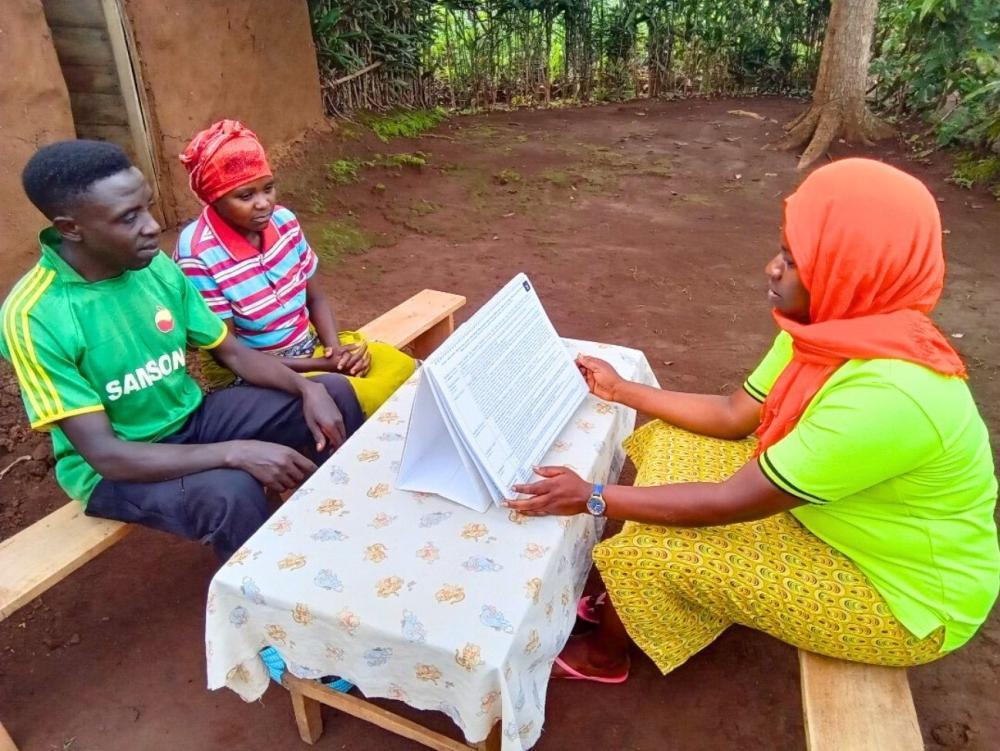Africa-Press – Rwanda. Karongi District has reported a sharp reduction in family conflicts, with about 6,000 households now living in greater harmony thanks to joint interventions by authorities, faith-based organisations, and development partners.
District figures show that since 2018, World Relief, a global Christian humanitarian organisation, has helped transform the lives of around 6,000 households through its Families for Life Program and Outreach Group Initiative (OGI).
“Most disputes stemmed from the lack of legal recognition of marriages,” said Julienne Ntakirutimana, the district’s Vice Mayor in charge of Economic Development. “With more families formalising their unions, we have seen a significant decline in conflicts.”
Mentorship model
Clemence Nkulikiyinka, Country Director for World Relief Rwanda, explained that the organisation applies a peer-to-peer approach, selecting and training model couples to mentor others on gender equality, joint decision-making, and mutual respect.
She noted that assessments revealed “power dynamics, poor communication, and inappropriate behaviours” as the leading causes of family disputes in Karongi.
“You often find that one spouse, usually the husband, controls financial resources and assets such as land and makes unilateral decisions,” she said. “Couples rarely take time to discuss problems or make joint financial and household decisions.”
Other triggers include alcohol abuse and infidelity, she added.
Partnership with churches
In collaboration with local churches, community leaders, and residents, World Relief has reinforced church networks to support vulnerable households. Significant progress has been recorded in sectors such as Twumba, Ruganda, and Mutuntu.
“The Families for Life program is enabling couples to resolve disputes and live in harmony,” Nkulikiyinka said.
Link to development
According to Benilde Uwababyeyi, a Social Protection Specialist at the Ministry of Local Government, addressing family disputes is essential for household progress.
“Resolving conflicts is the starting point for development,” she said. “When families are united, they can focus on income-generating activities, reduce poverty, and improve livelihoods.”
Survey findings
Findings from the Seventh Integrated Household Living Conditions Survey (EICV7) highlight persistent challenges, including informal cohabitation, which undermines women’s rights and household stability.
The survey also pointed to polygamy as a major source of land disputes and an obstacle to women’s access to family property. Despite legal measures discouraging the practice, 3.6 percent of couples nationwide live in polygamous unions.
Western Province reported the highest prevalence at 5.1 percent, followed by the Northern Province (4.1 percent), Eastern Province (3.8 percent), and Southern Province (2.5 percent). Kigali had the lowest at 2.1 percent.
For More News And Analysis About Rwanda Follow Africa-Press






